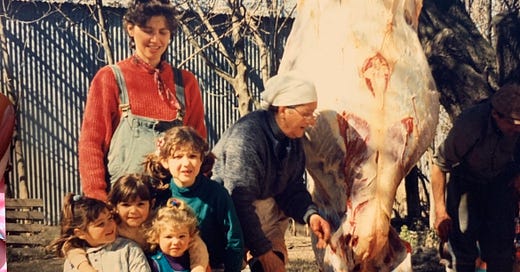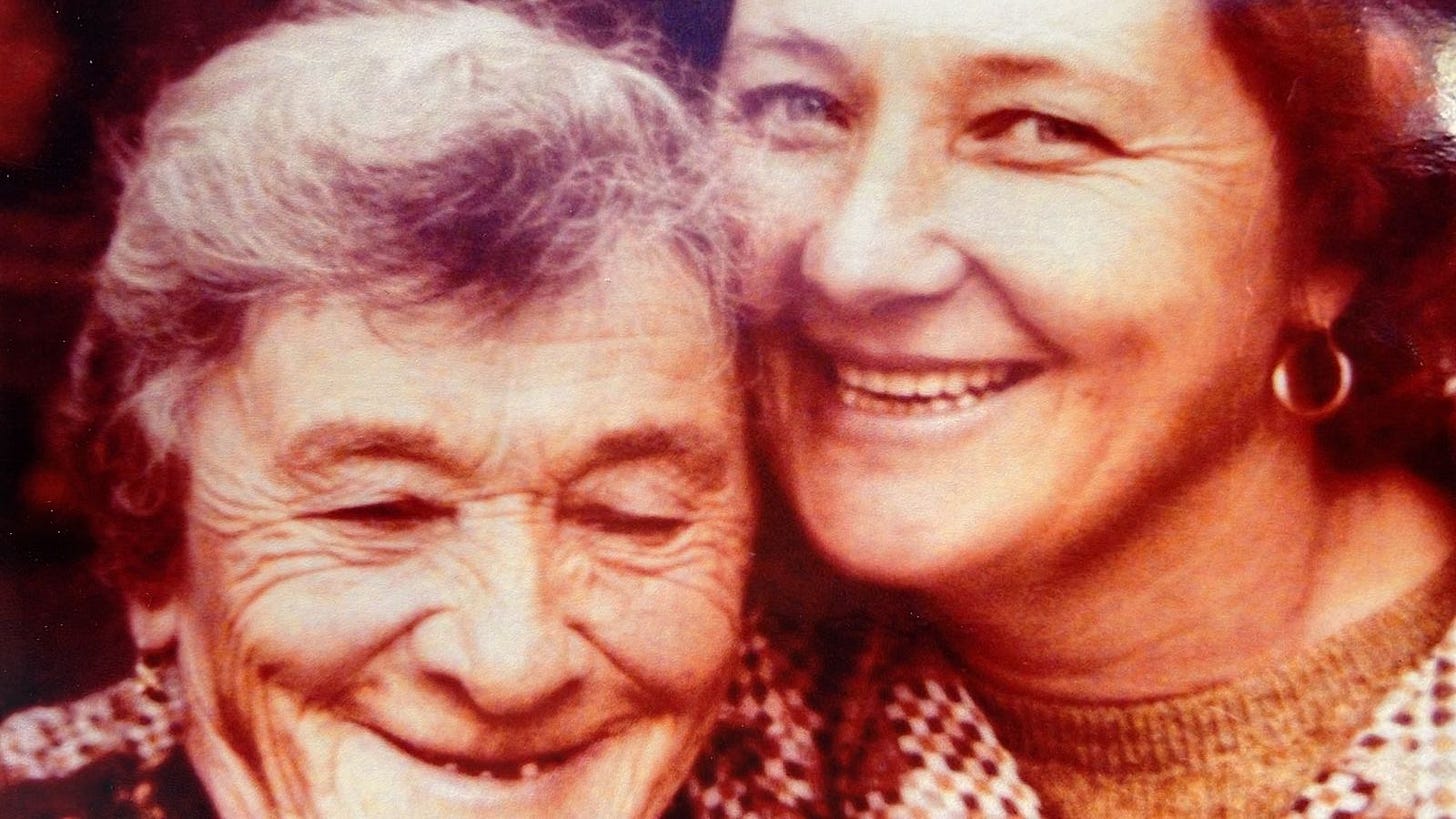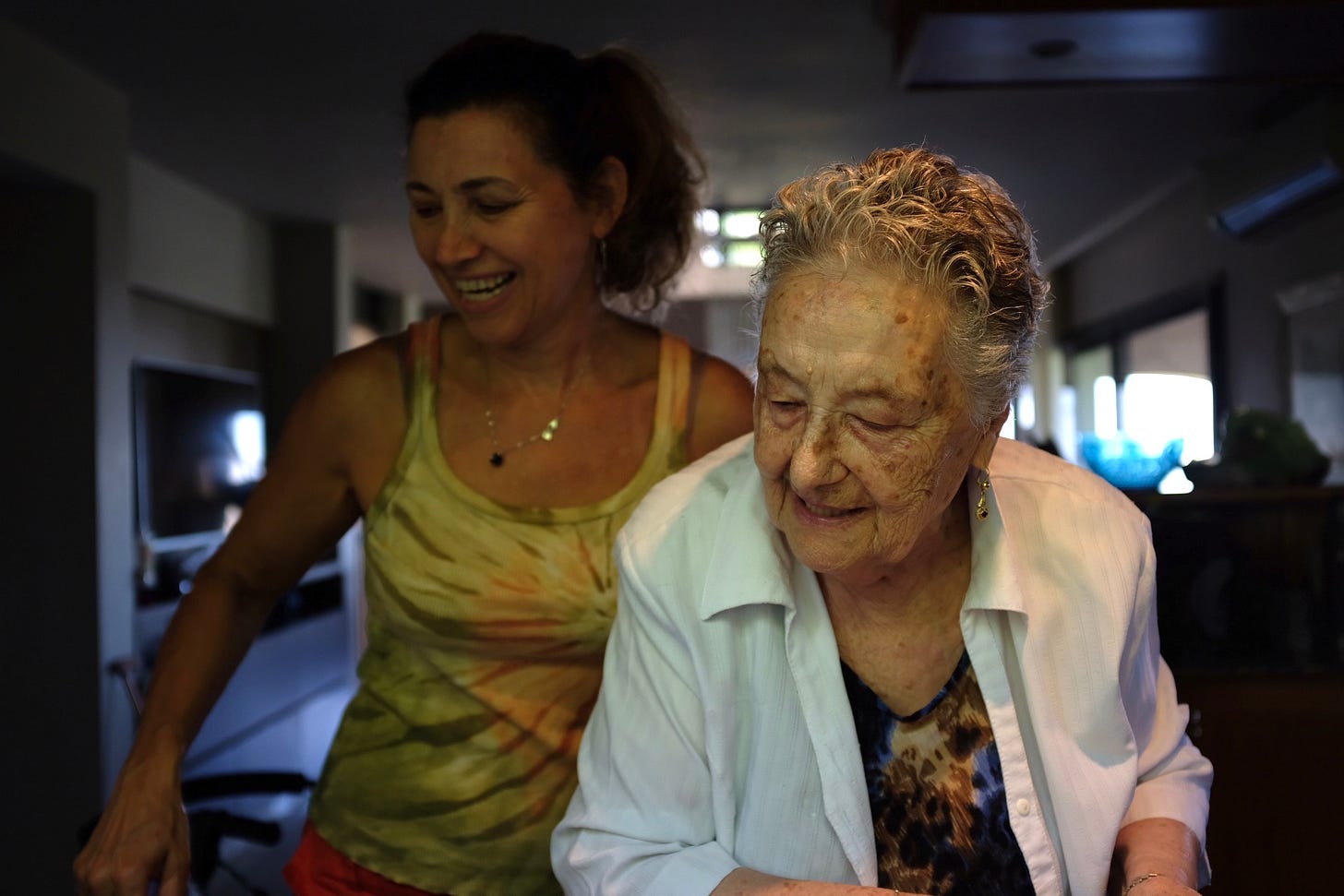One of my most vivid childhood memories is from when I was five, standing in my grandmother’s backyard, watching the little goat that stood there about to be slaughtered for dinner. Later that night, we in fact had roasted goat, one of my grandmother’s delicacies. This is an interview with my grandmother, Lucia, from May 2021, where we go back to her childhood, and life on the farm. I’m sharing her story to celebrate her 90th birthday coming up on November 12nd.
It was 1927, a woman in her early 20s with two children crossed the Atlantic ocean on a ship that left Italy straight to Buenos Aires, Argentina. They were on their way to a “new life in America”, with other thousands of Italian immigrants. Upon arriving in Buenos Aires, Catina and the children took a train, then a ride, and another ride, and some days later arrived in a very small town in the countryside of Cordoba, where her husband waited in what seemed to be the middle of nowhere. From that unlikely encounter, two other children were born, one of them was my grandmother Lucia Laurina Maratin, born in 1932 in Corralito, Argentina.
Turns out the (South) American life was rough to build. Lucia grew up in a poor family, in a house with no electricity. Everyone from the family worked to make a living - parents, and children, who went to school only for a short sprint. One of the first jobs young Lucia held was as a housekeeper - a sirvienta- working for the families in town, and that’s how she first started cooking. She had other jobs throughout the years to help support her family, including making mattresses with her mother.
When she married my grandfather, José Picchiottino, she returned to the fields, now as a housewife and a farmer. Her role as the housewife was to make sure the household functioned. That, of course, included feeding the family of six children, her husband, and other workers - about ten people in total.
I always think about life at the farm at those times. The absence of certain practicalities fundamentally set a different rhythm to day-to-day cooking. For instance, Lucia’s first fridge was in the late 60s by the time their fifth child was born - all those years before, they cooked every day and found ways to keep food safe for some time. Lucia kept fresh milk in an underground cave to keep it cool during the day. She also preserved food: jars of escabeche vegetables, fruit jams, dry salamis, and chorizos hanging from the ceiling, that would last for weeks and months to come in the basement of the house.
All the cooking was made with wood fires, which of course required wood in the first place and some patience. Lucia made breakfast, lunch, merienda, and dinner, every single day. Feeding the hungry crew was a demanding task, but one that she mastered with pride. She had her way with it.
“I made soup and puchero every day. A big pot filled with water, vegetables, and a piece of meat - muscle usually - and let that cook for hours. The soup was precious, we had it every day before eating lunch. I cooked with what we had available because the market was so far away, we went only twice a month.” Lucia remembered that the variety of vegetables available was much smaller than what we are used to today. They had carrots, squash, corn, greens… that was pretty much it?
Maybe the small variety of ingredients was an opportunity to expand on creativity and versatility. Milk for example. She told me that they milked every day, and made everything you can think of with that milk. They let the milk sit overnight to separate the cream and then make butter out of it. Their breakfast consisted of a pot of warm milk, with bread butter, cream, and dulce de leche - everything made at home, of course. Desserts were always rice or semolina boiled with milk. Everything with a lot of sugar, Lucia tells me.
My grandmother made an effort to bring good food to the table, to make sure the family and guests felt nourished, satisfied, and indulged. She was and still is proud of that.
“We threw big parties at the farm, people came from everywhere to visit. They were a success. As soon as a car pulled up, my husband would get up and ask me to prepare a picada (the argentine aperitivo), to cut salami, cheese, and bread for the guests. For special occasions, we prepared feasts with big asados, roasted over fires, and dozens of meat empanadas. I think people came because they knew the food would always be good”.
Lucia was married to my grandfather for 43 years. Six children were born from that marriage, twenty grandchildren from them, and ten great-grandchildren to date. My grandmother’s legacy cascades to me like water - passed from my mother to me. She describes those years at the farm as rough and I imagine it was - the immigration, the tough childhood, being a woman with all the expectations and responsibilities it carried. But from there came an undeniable resilience and sagacity in cooking.
I see so many similarities in our ways in the kitchen, the free spirit for making our own recipes, and the mindset that “there’s always food for one more”. By hearing her story I recognize the immense privilege that I have to cook purely from a place of choice and passion. I honor my grandmother’s path because it led to mine. This month we celebrate Lucia’s 90th birthday, and I’m happy to report she is celebrating in her favorite fashion: everyone is invited for a feast.
Thank you for supporting my newsletter! Merienda is a publication about the stories that inspire my cooking, and that catch my curiosity. Sometimes it takes me longer to publish, I guess my soul takes its time.
Thank you for reading, and please subscribe for future posts.











Thanks for sharing your memories of your grandmother. And a Happy and healthy New Year to her! It always amazes me how even though life was difficult, it was the simple things that inspired and gave meaning to it. It is a quality which, like you say, is a privilege to have in your family's history and to continue today.
One of my best memories traveling is staying with a Greek man and woman who were goat farmers on an island for a month. I don't speak Greek and they didn't speak English, but sitting there at the table with the warm goat's milk, sugar, bread and cheese, drawing pictures to each other, made me think it doesn't get any better....And I still believe that.